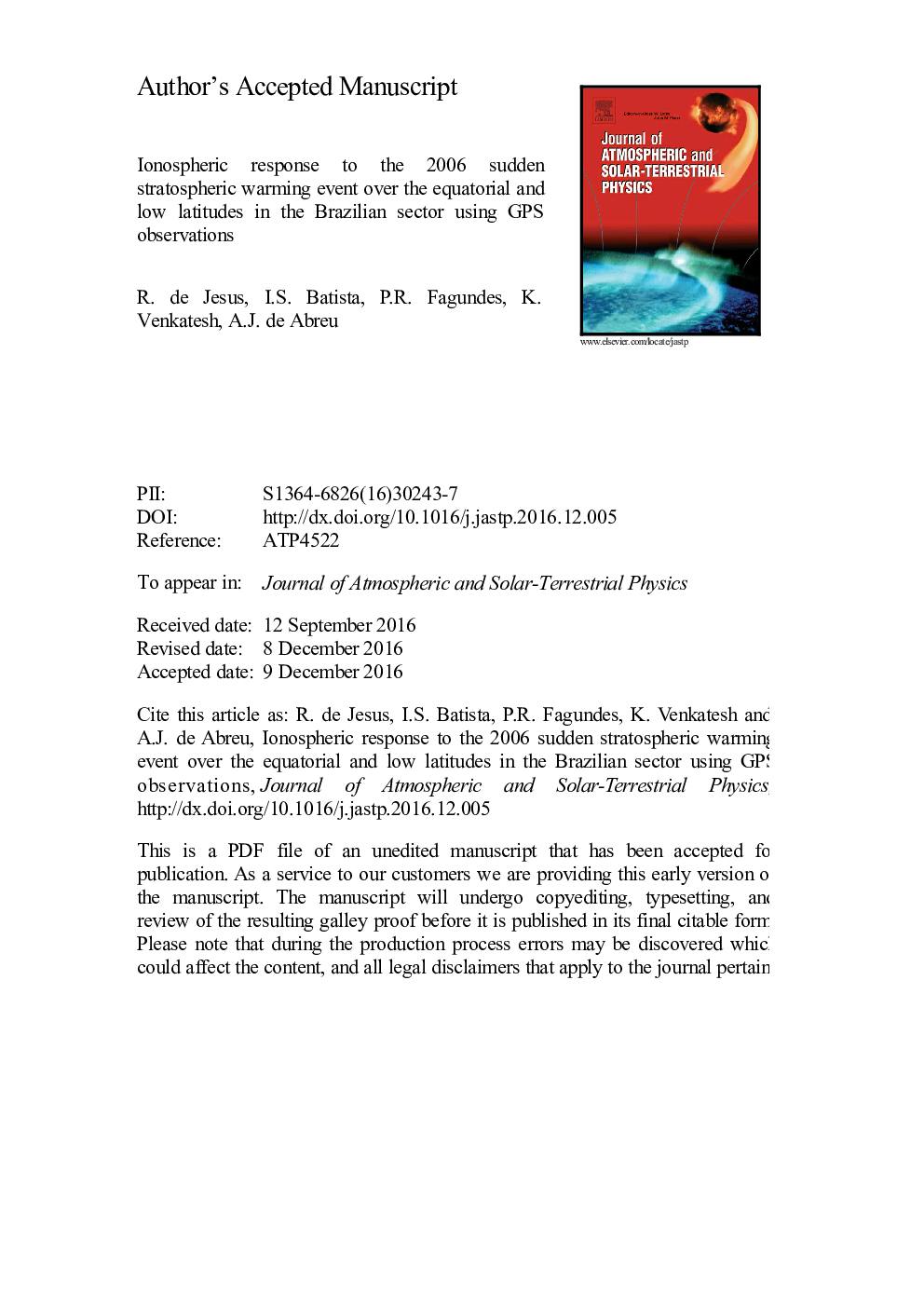| Article ID | Journal | Published Year | Pages | File Type |
|---|---|---|---|---|
| 5487632 | Journal of Atmospheric and Solar-Terrestrial Physics | 2017 | 15 Pages |
Abstract
The main purpose of this paper is to study the response of the ionospheric F-region using GPS-TEC measurements at equatorial and low latitude regions over the Brazilian sector during an sudden stratospheric warming (SSW) event in the year 2006. In this work, we present vertical total electron content (VTEC) and phase fluctuations derived from GPS network in Brazil. The continuous wavelet transform (CWT) was employed to check the periodicities of the âVTEC during the SSW event. The results show a strong decrease in VTEC and âVTEC values in the afternoon over low latitudes from DOY 05-39 (during the SSW event) mainly after the second SSW temperature peak. The ionospheric âVTEC pattern over Brazilian sector shows diurnal and semidiurnal oscillations during the 2006 SSW event. In addition, for the first time, variations in âVTEC (low latitude stations) with periods of about 02-08Â day have been reported during an SSW event. Using GPS stations located in the Brazilian sector, it is reported for the first time that equatorial ionospheric irregularities were not suppressed by the SSW event.
Related Topics
Physical Sciences and Engineering
Earth and Planetary Sciences
Geophysics
Authors
R. de Jesus, I.S. Batista, P.R. Fagundes, K. Venkatesh, A.J. de Abreu,
